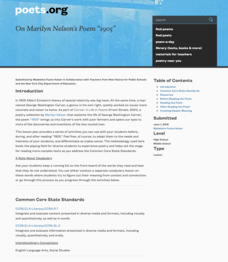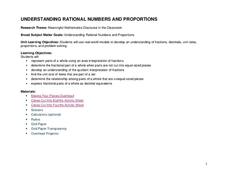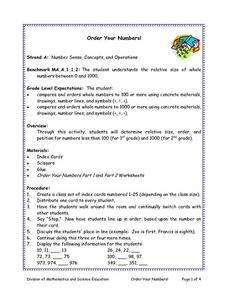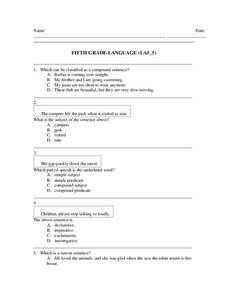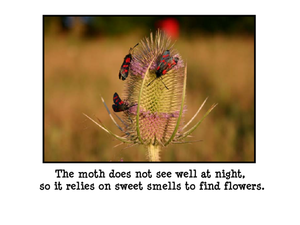iCivics
Lesson 2: Misinformation
Fake news is a hot topic right now ... but what is it? Intrepid young investigators track down the facts that separate journalistic mistakes and misinformation through reading, research, and discussion. Part three in a five-lesson series...
Social Media Toolbox
Twitter Time
Tweet all about it! Junior journalists explore the Twittersphere to determine its effectiveness as a news broadcasting tool in the 12th installment of the 16-part Social Media Toolbox. Participants follow and record their observations of...
Social Media Toolbox
Social Media Messages
What are the elements of a good social media post? The 13th activity in the 16-part Social Media Toolbox incorporates all of the typical components found in a Facebook or Twitter post. Scholars work together to create great posts based...
Academy of American Poets
Teach This Poem: "Violin" by Nikki Wallschlaeger
Nikki Wallschlaeger's Violin is the featured poem in a lesson that uses music and multiple readings to delve deep into its analysis. After a writing warm-up, learners watch and listen to a video that showcases Regina Carter...
Nemours KidsHealth
Obesity: Grades 6-8
Screen time and fast foods, sugary drinks and greasy fries have lead to one-third of tween and teens being overweight or obese. As part of the Health Problems Series scholars analyze the nutritional value of the school food services menu...
Health Smart Virginia
Ending the Silence on Mental Illness
To end the silence on mental illness, groups research a mental illness. They then create a scene-by-scene script, cast parts, and record a video that details the symptoms, causes, and treatment of the disorder. They also include what...
Academy of American Poets
Teach This Poem: "The Tradition" by Jericho Brown
To begin this lesson, class members examine Antonius Hockelmann's painting "Tree Flowers II," record elements of the painting that they notice, and share their observations with a partner. Next, pupils do a close reading of Jericho...
Academy of American Poets
On Marilyn Nelson's Poem “1905”
Marilyn Nelson's poem, "1905," asks young scholars to compare and contrast George Washington Carver and Albert Einstein. After studying images of the two scientists and listing their observations, class members listen to several readings...
Academy of American Poets
Teach This Poem: "Tamales on Christmas" by Christian Robinson
A instructional activity spotlights the poem "Tamales on Christmas" by Christian Robinson. Scholars discuss their favorite foods and then examine a lively picture of a family preparing tamales. After listening to the poem twice, learners...
Curated OER
Fraction Circles
Fourth graders receive a fraction circle and show how each different part makes a whole. Students compare the different fractions that make up a whole. Students choose 2 fractions which are inside a bucket and they compare them both...
Curated OER
Understanding Rational Numbers and Proportions
Learners explore parts of a whole. In this fraction lesson, students determine what makes a fair share. Working with manipulatives, learners solve mathematical problems containing fractions.
Curated OER
To Be (Half) Or Not To Be (Half)
First graders demonstrate various ways to represent and verify a whole or set separated in two, three, or four equal parts. Using interlocking cubes, Students model a part of a whole or a part of a set. They use appropriate tools and...
Curated OER
Percent Box
Students examine the procedures to determine a number when the percentage of the whole is known or to find the whole number when the part or percentage is known.
Curated OER
Order Your Numbers
Students examine the order of whole numbers that range from 0 to 1,000. They compare and contrast the quantities of different numbers using the number line, objects, and symbols of comparison. Students also work as a class with cards to...
Curated OER
Technology Lesson Activity: Fractions
Fifth graders practice using the English measuring system by creating fractions. In this parts of a whole lesson, 5th graders combine math key bars to simulate small parts of a bigger item. Students combine the pieces to...
Curated OER
Divide and Conquer
Seventh graders analyze responses to different types of problems. Using pictures and diagrams, they explore and model the division of fractions. Students examine situations that call for division whether with the whole numbers or with...
Curated OER
Number and Number Relations: Lesson 2
Fourth graders participate in using the terminology of more, less, between, compare, and order. They compare whole numbers and use the symbols for <, >, =. They order whole numbers and practice with problems where they use this...
Curated OER
Number and Number Relations: Lesson 3
Eighth graders compare whole numbers and decimals. They use symbols for <, >, =, and order whole numbers and decimals. They practice the meaning of positive and nugative integers by using them to describe real-world situations.
Curated OER
The Multiplier (small 2-digit by 1-digit numbers)
Second graders study digits in 2- or 3-digit whole numbers. They write and solve story problems which involve whole numbers, using addition, subtraction, multiplication, or division.
Curated OER
Little Mouse, the Red Ripe Strawberry and Big Hungry Bear Lesson Plan
Students create a fruit salad using pieces of fruit cut in halves. In this early childhood lesson plan, students discover the concept of half and whole. Students experience this concept in a hands-on activity in which they cut fruit...
Curated OER
Finding PI
Students select and use appropriate operations, methods and tools to compute or estimate using whole numbers. They develop and use formulas for determining the circumference and area of circles. Students determine and describe the...
Curated OER
Fifth Grade Language
In this language arts worksheet, 5th graders complete multiple choice questions about parts of speech, subjects in sentences, compound sentences, and more. Students complete 25 questions.
Curated OER
Smarty Plants
Young scholars examine plants and pollinators. In this plant biology activity, students read The Power of Pollinators and identify the parts of the plant and the pollinators. Young scholars design their own imaginary plants.
Curated OER
Fractions
Students observe and demonstrate a variety of activities to identify the fraction parts and the symbols they represent. As a class they explore different fractions using unifix cubes, then use the cubes to build and discuss the...
Other popular searches
- Fractions Parts and Wholes
- Math Parts and Wholes
- Wholes and Parts
- Fractions Parts of Wholes
- Parts and Wholes Science







